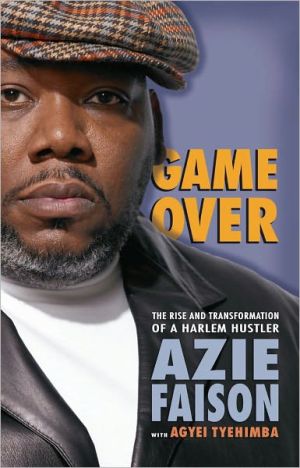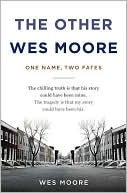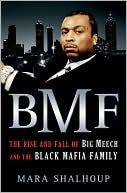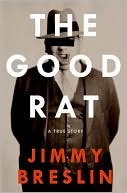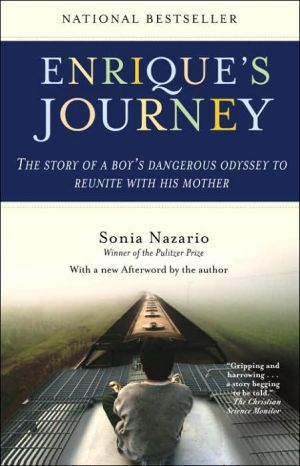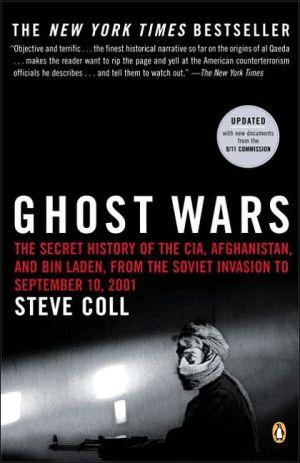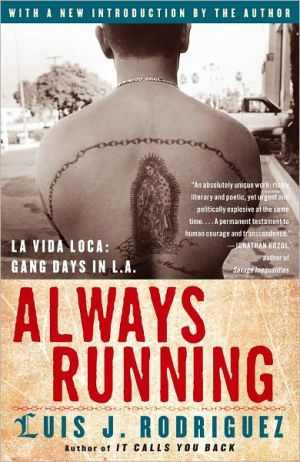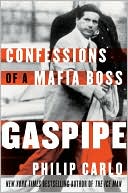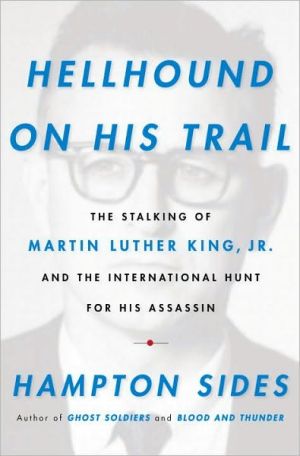Game Over: The Rise and Transformation of a Harlem Hustler
A cautionary tale about the life of former kingpin Azie Faison, who has become the fabric of street legend\ Faison was a ninth grade dropout who earned more than $100,000 a week selling cocaine in Harlem, New York, during the peak of America's "War on Drugs" between 1983 and 1990. Faison, along with two partners, was an urban prince with cars, jewels, and people — in awe of this million-dollar phenomenon — at his feet. His legacy has been praised by hip-hop's top names in their lyrics, and...
Search in google:
A cautionary tale about the life of former kingpin Azie Faison, who has become the fabric of street legendFaison was a ninth grade dropout who earned more than $100,000 a week sellingcocaine in Harlem, New York, during the peak of America's "War on Drugs" between1983 and 1990. Faison, along with two partners, was an urban prince with cars, jewels, and people — in awe of this million-dollar phenomenon — at his feet. Hislegacy has been praised by hip-hop's top names in their lyrics, and his life wasthe basis for the urban cult classic film Paid in Full starring Mekhi Phifer, Wood Harris, and rapper Cam'ron and produced by Jay-Z's Roc-A-Fella Films.In Game Over, Azie brings forth a powerful memoir of New York's perilous drug underworld and music industry, with an intellect and wisdom to empower and challenge the street culture he knows so very well.
\ 1\ Sugar Hill\ \ "Open the safe, nigga! Open the fuckin' safe now, or I'm gonna kill everybody in this bitch! Hurry up, motherfucka..." That's the last thing he said before he hit me hard in the head with the butt of his gun, causing blood to flow into my eyes. Shaking with fear and numb from the pain, I tried to respond: "Look, man...The blood is blinding me. I can't see! I don't have no money in the safe anyway. Just let everybody go...I'll get you some money. They don't got nothin' to do with this."\ I was on my knees, bent over, with blood pouring out of my head. I felt no pain; I was numb. This was my judgment day -- payment for all my sins. God lost patience with me. Instead of listening, I ignored the Lord's warnings and turned my back on Him. I heard His voice throughout the years, but I wasn't sure it was Him. So there I was. My head was spinning, my heart was pounding, and my eyes were stinging from the sticky blood pouring into them.\ Stumbling around in pain, I managed to clear some blood from my eyes using my shirt. What I saw took my breath away: Five people, including my aunt and my best friend, were tied up in my aunt's bedroom. They were handcuffed and lying facedown, pleading for their lives. By nightfall, my aunt, her friend, and my best friend were pronounced dead. Two more people survived, but they sustained serious wounds. As for me, I took two shots to my head at point-blank range, and seven more: one to my neck, another in my shoulder, and the rest in my leg. I was shot nine times. I saw a bright light and my body felt like it was rising toward the light.\ "We're losing him, we're losing him. He won't make it." The paramedics who rushed me to the hospital had no reason to believe I'd survive. In fact, I didn't survive...at least the old me didn't. On that day, the old me was killed so a new me could be reborn.\ People who lived in New York City, especially Harlem, during the eighties and nineties regard me as a street legend. I made millions before I was old enough to vote, which allowed me to live a life most people only dream of living. Customized cars, fine women, property, and street respect were my way of life. I spent money at will and made it possible for many people in Harlem to eat and pay bills. Along with my associates, Rich Porter and "Alpo," I had no way of knowing that years down the road, our lifestyles would influence music, clothing, and even Hollywood.\ How did I get so much money and influence at such a young age? I was a hustler...yeah, I sold drugs. I did my thing during the Pablo Escobar-Manuel Noriega-Oliver North era. Throughout the eighties and nineties, I probably sold enough cocaine to make it snow in New York City.\ But anything built on negativity will eventually bring destruction to those who profit from it. In the end, we all paid a huge price for the fame and wealth we got by selling drugs. The drug game forced me to experience things that changed my life forever.\ I was born in a Bronx hospital on November 10, 1964. I lived the first six years of my life between 165th and 167th Streets and Clay Avenue. We lived in a poor neighborhood, and like many other families on the block, we received public assistance, or welfare.\ Many people like to say, "Even though we were poor, I never knew we were poor." I think people say that to show respect to their parents for trying to make ends meet. My parents did the best they could, given our situation. Poverty, like wealth, is something that is both hard to hide and hard to deny. I couldn't escape the reality that my family was poor. Everything from where we lived to how we lived, reminded us we were poor.\ I had seven brothers and sisters: Wanda was the oldest, then came Kevin, Robin, Rosalyn (also known as "Pie"), me, Julie, Ingrid, and Wayne. Out of my sisters, Robin was my favorite because she knew how to mind her business and she knew plenty of street cats who made big money growing up.\ I'll never forget when Wanda ran away from home to be with her boyfriend at the time. She returned months later...and she was pregnant! My mother greeted her with open arms. I guess she was just happy to have her firstborn back home.\ My little sister Ingrid was my little baby girl. I was proud of her because she graduated from A. Phillip Randolph High School, located on the City College campus, and eventually did a year of college. By Ingrid's senior year in high school, I told her that when she graduated I would buy her a car. I was about twenty-one years old at the time, and I kept my promise.\ My brother Kevin graduated from John F. Kennedy High School, and entered the United States Marine Corps. He only stayed for a couple of months before he received a dishonorable discharge. I believe it had something to do with him smoking weed.\ Wayne was the baby of the family, and like most babies, he was spoiled. He never wanted for anything. When I got into the game and had major money, I bought Wayne and my nephew hot dirt bikes one Christmas. They became the envy of the block, since most kids barely had regular bikes at the time.\ My sister Pie was something else. At Stitt Junior High, she won the beauty pageant, which made her and me very popular in the school. Julie was always very quiet and reserved. She stayed to herself or under my mother.\ Things were so tight back then that nine of us lived in a one-bedroom apartment. My parents occupied the bedroom, and we slept in the living room on a pullout couch or the floor.\ To be fair, we took turns sleeping on the couch. Everyone hated the floor because you usually woke up with a permanent crick in your neck and a sore back. On the nights I had the floor, I used pillows to cushion myself. It wasn't comfortable, but we didn't have a choice so we made the best of it. Poverty robs you of options.\ Poverty also influences your decisions. For example, not having much money actually motivated us to attend school every day (although we didn't always stay in school all day). We appreciated school not just for the lessons, or the friendships we made, but because it provided us with two hot meals daily. We all went to school early to get breakfast, and never missed lunch. Dinner was the only meal we had at home during the week, and usually this consisted of a bologna or ham sandwich and some juice or milk.\ My mother, Margaret Rogers, was a native New Yorker. She met my father when she was twenty years old; he was forty. I figure she wanted to get with an older man who could provide her with a good quality of life.\ Short, fair-skinned, and heavyset, my mother was a housewife who wanted to enjoy life's finer things, having grown up poor herself. Unfortunately, my father's salary could not support her desires. As a result, she constantly reminded my father of how broke we were.\ My mother was always a great cook. She made huge feasts for the holidays, and we couldn't wait to get our hands on her apple cobbler and smothered turkey wings. I liked everything she cooked with the exception of chitlins -- the entire house smelled like shit whenever she prepared them. She believed everyone had the right to eat and eat well. In fact, people would often knock on our door, and my mother would make them plates with no hesitation.\ My father, Azie Faison, Sr., was born and raised in Fort Lauderdale, Florida. He stood about five feet nine and wasn't very large, but he carried himself like a giant. He was dark-skinned with strong, proud facial features. He had jet-black hair like a Native American and honest, penetrating eyes that looked right through you.\ My mother taught me the importance of making money. My father, on the other hand, taught me how to be a man. He wasn't just a man; he was the man. He was the most humble and reliable person I've ever known. He moved furniture for a living so he didn't make a lot of money. But he worked hard to support our household. Unlike many men at the time, he didn't smoke, drink, gamble, chase women, or maintain a fancy wardrobe.\ My father didn't try to be something he wasn't and he didn't change for anybody. I remember times my mother would have some girlfriends over at the house, laughing and gossiping. My father would sit quietly in his chair watching television. Once they left, my father would mutter, "Thank God. Now I can relax and have my space." Privacy and humility were important to him. I never remember anyone saying a bad word about him.\ When I got involved with the drug game, my father was the only family member who didn't ask me for money or presents. He told me he "wanted nothing to do with my blood money."\ It wasn't until I began selling coke, around 1983, that I had huge knots of cash. I felt like I was the man because I brought in more money in a week than my father did in a year. Cocaine sales made me the main breadwinner in the house. I paid the rent, bought food and items for the apartment, and gave my mother rolls of money whenever she needed it. I figured that since I took care of the home, nobody could tell me shit.\ And it seemed like everybody in the house respected my authority -- everybody except my father. My money didn't mean shit to him. He refused my money and demanded my mother do the same (although my mom had no problems accepting it when he wasn't around). As far as he was concerned, he was the man of the house, and still had the authority to regulate his children. He proved that one day when he came into my room and caught me bagging up some coke. I had shit everywhere: a huge mound of coke, baggies, a scale, and hundreds of little vials.\ "What's this? What are you doing in my house?" he asked. "You get involved with those drugs and you're gonna pay," he warned. "And if you are selling that poison, I don't want nothing to do with you until you stop."\ I ignored every word and didn't even reply. In my ignorance (and arrogance) I shut him down and shrugged him off. That was the turning point in our relationship. For the first time, I didn't yield to his authority. He shook his head in disappointment and left. True to his word, he stopped speaking to me from that day until I got shot years later.\ People out for your money will do and say shit to keep your money rolling in. Those who really love you will try to point you in the right direction and rock the boat no matter how you react. My father took the right stand despite the fact that his own wife and children did the opposite. For that, he always got my maximum respect.\ Even when I learned that he was not my biological father, I still saw him as my dad. I'll never forget when my sister came to my job at the cleaners with a tall cat claiming he was my "real" father. I couldn't front, I looked just like the dude. I told him without blinking or stuttering: "Look, man, nice meeting you, but you ain't my father. My father is in the house right now."\ "But, Azie, this is our fa -- "\ "Nah, sis," I interrupted. "That's your father. My father is in the house handling his business like he's done all my life."\ I guess the brother didn't want to fight a losing battle, so he nodded to me with a sour look on his face and left with my sister. That was the first and last time I saw my biological father. My sisters stayed in touch with him, and sometimes got money and presents from him. I didn't bother. The man I was named after was in my life since the day I was born.\ There are two types of women. Those who recognize the qualities a man brings to the table, like being honest and hardworking, and those who judge a man by his finances. My mother was the second type of woman. When she wasn't complaining about what we didn't have, she was telling us to get jobs to help support the house.\ My mother received welfare, which helped us to pay rent and purchase food and clothes for our family. Receiving welfare brought certain humiliating requirements or conditions. One condition was that my father had to leave the house whenever a welfare worker came by. To qualify for the benefits, we had to give them the impression that our father did not live with us. Had my father been present, we would lose our welfare benefits because of the money he made.\ My mother often warned us not to miss school. Absences might cause a welfare worker to visit our home for what they called a "face-to-face" meeting with my mother. She was scared to death of these meetings, because they might jeopardize her welfare payments. I guess the worker could also determine that a parent was negligent in raising their children, and possibly have the children separated from their parents.\ Television allowed me to forget some of my problems, laugh, and escape to a fantasy world. Unlike real life, everything on television seemed to work out right.\ During the 1970s, shows centered on black characters began flooding our televisions. Network executives finally realized that black people had lives worth exploring too. Or maybe they saw that black people made up a market they needed to take advantage of. I never missed an episode of Good Times, The Flip Wilson Show, Sanford and Son, The Jacksons variety show, The Richard Pryor Show, What's Happening!! or The Jeffersons.\ I really liked Good Times; I think many children in the 'hood did. The show gave viewers a glimpse into the lives of a poor family living in a Chicago housing project. Episodes explored a number of topics children like me could relate to, like unemployment, school bullying, and peer pressure. The characters on the show appealed to us, because in looking at J.J., Michael, or Thelma, we saw people we knew in our own families or neighborhoods. We all knew a Willona-type character, a female friend of the mother who often came over to gossip: What urban 'hood didn't have a character like Lenny, who sold everything you could think of at discount prices? Many of us could relate to a strong mother figure like Florida Evans or a hardworking dad like James who did what he could to "bring home the bacon."\ Our parents sometimes let us have company, and we watched some of these TV shows together. Times like that were embarrassing because our television set was busted. The dial was always broken, so we could only turn the channel by sticking a fork into the TV. Whenever someone turned the channel with that fork, my friends would get on my case the next day in school. The big joke among my friends was that watching television at my house was like having a "TV dinner."\ You can learn about a society or culture by checking out their popular television shows. When I was growing up, most shows were about families, and having good clean fun. Things weren't that graphic back then. The most you saw was a little kissing. You never heard inappropriate words. Now, people can say "ass" and "bitch" on network shows. I guess television reflects the values of society.\ Of course, television wasn't our only form of entertainment. Every kid in the 'hood played puff basketball. You had a small Nerf basketball -- a soft, spongy little ball -- and a little hoop that any kid could reach. Nerf basketballs were cool because you could hit things with them without breaking anything.\ My brothers and sisters and I loved to dance. We tried to imitate the Jackson Five by dancing and lip-synching in the mirror. Or sometimes we acted out episodes of the Little Rascals. We would sing their songs and try to speak like them. As a last-ditch effort at amusing myself, I loved to scare my sisters at night. I would hide in their bed or behind the curtain, and jump out once they fell asleep.\ We also played the typical childhood games like hide-and-seek, musical chairs, Simon says, and different card games. Besides helping us have fun, these games helped develop our physical fitness and social skills.\ I think most kids love to play fight, and my family was no different. I loved to wrestle with my brothers and sisters. To win the match, you had to pin the person down and count to three before they got up. One time, my mother bought me and my brother some boxing gloves, and we got busy. My brother Kev and I used to battle like Muhammad Ali and Joe Frazier all the time, and he usually whipped my ass.\ Sometimes our games got too serious. One day Kevin punched me hard in the stomach and knocked the wind out of me. I felt like I was about to die, but I recovered and I challenged him to a rematch. I tried to take his head off. We had to quit before things went too far.\ When the movie Star Wars came out, Kev and I pretended we were Darth Vader and Luke Skywalker. We used curtain rods for light sabers. I was Luke Skywalker, the good guy. After saying "May the force be with you," I proceeded to light his ass up. We had a good battle going until I accidentally poked him in the eye. Kev ran into my sister Wanda's room crying with a bloody eye. "Look what Junior did to me! Look at my eye!" Anybody who grew up with siblings knows that the older sister tries to police shit in the house when the parents are gone, and my sister Wanda was no different: "Look what you did! Why did you do that?"\ My brother made his case and had the evidence to prove it. He was the prosecutor and my sister was the judge. I tried my best to give a good defense.\ "We were playing. He was hitting me too. I didn't do it on purpose. He ran into it." Wanda wasn't having it. She whipped my ass, and then told my mother. My mother whipped my ass, then told my father when he returned from work. Then my father whipped my ass.\ Kev wasn't satisfied. He wanted me to get more punishment. While my father was beating me, Kev ran into the room crying again (hours after the shit happened) talking about how much his eye still hurt. Next thing I knew, my mother, father, and sister started whipping my ass at the same time. I got jumped by my own family!\ One thing I hated about growing up with brothers and sisters was favoritism. In big families, it always seems like one child gets more love from the parents than the rest. In my family, when we were young, Kevin was the favorite. He was a pretty-boy type with soft, curly hair. He got fewer beatings than anybody else, and always got better presents than I did.\ For example, my mother bought me pants from Alexander's department store. Alexander's was a store where you could purchase just about anything for a low price. Kev, on the other hand, got brand-name stuff. I got no-name sneakers -- we called these cheap sneakers "skips." Kev got brand-name sneakers like Pro-Keds.\ Kev and I had different fathers. I believe that my mom was truly in love with Kev's father, and never really got over him. Every time she looked at Kevin, she saw his father and probably thought about the good times they shared. Maybe this explains why she always took good care of him. I think parents should be careful not to play favorites. No child should grow up feeling better or less than anyone else in the house. I felt like my mother loved him more than she did me; this made me feel like I didn't matter.\ Sometimes the drama of real life drowns out the laughter or sense of escape provided by television shows. Around the time I was five years old, in the winter of 1970, I had my first brush with death. My brothers and sisters were at school. My little sister Julie, who was about three years old at the time, was at home with me and our mother. My mother was cooking when she had to suddenly run out.\ "Azie, I got to go. Stay here and I'll be back. Keep an eye on your little sister. Don't leave this house, do you understand?"\ "Yes, mama."\ She bolted out the door and locked it. Soon I began to smell smoke, so I went in the kitchen to investigate. The thick smoke made me cough and made my eyes water.\ Our kitchen was on fire! I grabbed Julie and tried to open the front door, but it locked from the outside. I ran to the window but it was also locked and wouldn't budge. I started to panic and banged on the window. I was scared to death. I thought we were going to die. I felt hopeless and with nowhere to turn.\ No one heard my cries for help, and smoke continued to fill the house. I was in shock and I felt numb. At five years of age, I was not mature enough to be responsible for myself, let alone my little sister Julie. No one had ever told me what to do in case of an emergency in the home. Not knowing what to do, I looked up to the sun and I prayed: "Please, God, help us." Thank God, my father arrived just in the nick of time and unlocked the door.\ "Margaret...Margaret," he screamed, calling for my mother.\ "Daddy, over here by the window," I said.\ He rushed over and picked us up, asking, "Where's your mother?" He was visibly upset.\ "I don't know...she left," I replied, still coughing from the smoke.\ He rushed us downstairs to safety and took us across the street in the freezing cold. He wrapped us in his coat and we watched as our entire building burned down. Julie was crying and the smoke aggravated her asthma. I was dazed. All I could think was "Where do we go from here?" Everything we had was gone almost in the blink of an eye.\ I often think about that day, and how strange my mother acted. I never had the nerve to ask her directly about that incident. I guess it brings back some painful memories. The fire made us temporarily homeless. We actually moved to a shelter. I don't remember much about the shelter, but I was sure glad the social workers found us a place in Harlem a few months after the fire.\ To me, Harlem is the most powerful 'hood in the world: the Mecca. It's where all the trends begin, where young kids learn their walk, their slang, and their 'hood fashion. We moved to the famous Sugar Hill section of Harlem, a spot I'm very proud of. Sugar Hill runs from Edgecombe Avenue to Amsterdam Avenue and from 145th Street to 155th Street. If you lived in Sugar Hill during the first half of the twentieth century, it was a sign that "life was sweet" or that you had made it.\ Many rich and successful blacks lived in the area from 1920 to 1950. The list includes such notables as Adam Clayton Powell, Jr., Paul Robeson, Madame C. J. Walker, Langston Hughes, W.E.B. DuBois, Roy Wilkins, Thurgood Marshall, Marcus Garvey, James Baldwin, Zora Neale Hurston, and Duke Ellington.\ In The Autobiography of Malcolm X, brother Malcolm described how he adopted Harlem as his hometown. An older brother I know named Charles told me that during Malcolm's criminal days, Malcolm did much of his dirt in Sugar Hill. Later, as a Nation of Islam minister, he worked his old turf, this time holding rallies and organizing meetings.\ Harlem also had its share of criminal legends. These were flamboyant characters who spent big money, dressed stylishly, and became rich in the criminal underworld. The movie Hoodlum, starring and produced by Laurence Fishburne, explored the life of Ellsworth "Bumpy" Johnson, a legendary numbers banker in Harlem for over three decades.\ The infamous Leroy "Nikki" Barnes established his heroin empire in Harlem, and made tons of money throughout the sixties and seventies. Harlem's reputation -- the good and bad -- made it known as the place where people hustled hard, made tons of money, and did things with flava and style.\ Sometime in the spring of 1970, my family moved into 723 St. Nicholas Avenue, located on the corner of West 146th Street. The area changed over the years, but back then, Harlem had the feeling of a close-knit community. Older neighbors in the 'hood would discipline you for doing something bad, and then tell your parents so they could beat your ass too.\ Compared to our old neighborhood in the Bronx, this part of Harlem had it going on. The people seemed to make more money and be more successful. The buildings even looked nicer than the ones in the Bronx.\ I attended elementary school at P.S. 186, located on 145th Street between Amsterdam and Broadway. I completed first through fourth grades there, until the school closed in 1975 due to its dilapidated and unsafe condition. The building remains, but has stood idle and in disrepair for many years.\ A new elementary school, P.S. 153 at 146th and Amsterdam, opened in its place. I entered the school for fifth grade. Our entire first year at 153 was spent moving all the materials from P.S. 186 to the new site. We didn't do any actual schoolwork during that whole year. I remember all of us carrying books from one school to the other, every day. Instead of paying us, the Board of Education promoted us to sixth grade even though we really hadn't learned anything.\ I loved doing magic tricks. Ms. Frazier, my fifth grade teacher, would let me stand up and do tricks during the last fifteen minutes of class, if everyone behaved every day. I really looked forward to the time when Ms. Frazier would give me the stage to "do my thing."\ "If y'all act right today, I'll let Azie do one of his famous magic tricks," she'd say.\ This gimmick usually worked because the students loved my tricks and Ms. Frazier liked having an orderly class. You name the magic trick and I did it. I had card tricks, could turn one ball into three, and could pour water into newspaper shaped into a cone, then make the water vanish. I even knew how to make a coin disappear into thin air.\ A few years later, magic got me into my first bit of trouble with the law. I had this brand-new book of tricks that I carried everywhere. I was coming home from junior high school one day, waiting in the train station reading my trick book. A dude I knew from school named Orlando ran up, snatched the book from me, and tossed it on the train tracks.\ It was like somebody flipped on my "crazy" switch. I tossed his ass on the train tracks and wouldn't let him up until he gave my book back. The police saw the whole thing, so they snatched both of us and called our parents. My mother came to the precinct to get me, and she was furious.\ "Boy, you and that other boy could've got hit by a train... and for what, a stupid book?" Parents have a way of mentioning the worst case scenario to make a point. That scenario for her was us getting killed by an oncoming train. For me, it was letting some other kid ruin an important possession of mine without me kicking his ass. My concerns reflected typical street thinking: Protecting one's property or upholding one's respect was more important than issues of life or death.\ There were times during my childhood when I experienced spiritual moments I didn't fully understand at the time. When I was nine years old, to help make ends meet I bagged groceries for Ms. Evelyn after school every day at a local supermarket on 145th and Broadway called the Food Pageant. I made my little two or three dollars on weeknights, and ten dollars or so on the weekends. But one night I'll never forget. It was Halloween Eve. I usually packed bags until Ms. Evelyn got off work, which was usually nine o'clock. This night I wanted to leave early, at 7:30 p.m.; I desperately wanted to get home to watch It's the Great Pumpkin, Charlie Brown.\ I asked Ms. Evelyn for permission to leave early. Since the store wasn't busy, she said, "No problem, Azie. I can take it from here. See you tomorrow."\ I left work and ran to the store to pick up some goodies. I ran home just in time to see my sisters and brothers gathered around the television to watch the show.\ I handed out my goodies. My mother entered the living room from her bedroom saying, "Junior, before you get comfortable, run to the store and get a loaf of bread so I can make y'all some sandwiches before you go to bed."\ I jumped up and ran out the house as quick as possible, trying to outrun time itself so I could make it back to catch the beginning of the show. I rushed to the store, grabbed the loaf of bread, paid, and ran out of the store.\ All I could remember is hearing Mr. Stokes, the storeowner, saying, "Slow down, boy. What's the hurry?"\ When I left the store, it was like I was in another time zone, or a desert. I looked around, scared to death. All the buildings were gone, along with the store I'd just left. There were no cars or anything. All I saw was the sun beaming brighter than it ever did before. Sand covered the streets. I saw a mirage of my building about a mile away. I started running toward it, fast as I could, in fear.\ As I ran, every footstep I took, I heard a loud footstep behind me. It seemed like the faster I ran, the faster it ran. It made me stop in my tracks to see what was behind me. I turned around, only to see the sun now hovering over me in the shape of a cross with a loop on top. I'd never seen anything like it before. I turned and began running faster. The footsteps behind me grew louder and louder. I made it to my building and went inside, and suddenly, the moment I entered the building, all that took place left my mind as if it never happened. I went to my apartment door and rung the doorbell. My mother, very upset, began yelling and cursing at me.\ "Where the fuck you been at? I'm gonna beat your ass if you don't tell me where you're coming from."\ Confused, I said, "Come on, Mom, stop playing. I'm gonna miss the show."\ My mother replied by saying, "Boy, do you know what time it is? It's after eleven o'clock. I had to send your brothers and sisters outside without anything to eat. I sent them to find you, but they said they couldn't find you anywhere."\ Still confused, I said, "Come on, Mom. I went to the store and came right back. Look," I said as I showed her the bread I bought.\ She snatched the bread, then grabbed me and pushed me in the room, telling me to go to sleep.\ "Your father is gonna whip your ass when he comes home from work. This ain't like you, Junior. I sent you to the store hours ago." She cried as she walked back to her bedroom.\ I sat on my bed in the room, in deep thought. I tried my best to do the right thing. Out of all my brothers and sisters, only I worked hard to help support our household. I packed bags and delivered papers. I gave my mother seventy-five cents of every dollar I made. "Why me, God?"\ No sooner than I asked, there was a knock on my window. I moved the curtain back only to see the sun in the shape of a strange cross again. Scared to death, I jumped back into bed and pulled the covers over myself. Soon afterward, my father entered my room shaking me.\ "Get up! It's time for school. What, you gonna sleep all day 'cause you was hanging out all night?"\ I'm thinking, "Wow, I just laid down."\ I was too young to understand what took place at that time. Looking back, I believe it was God's way of telling me he had a plan for my life, a plan I couldn't run away from. I didn't fully understand that plan until 1987. And it wasn't until years later that I realized the strange cross was an ankh, the Egyptian symbol of eternal life.\ Copyright © 2007 by Azie Faison and Agyei Tyehimba
Author's Note viiForeword xiSugar Hill 1School Daze 23My 'Hood 29Temptations 37The Game 53Paid in Full 75Married to the Mob 85Lifestyles of the Rich and Infamous 93The Devil's Advocates 109Game Over 127Snitching 151The Crucifixion 161MobStyle 185Harlem to Hollyhood 227Blind, But Now I See 243Epilogue: The Sun Still Shines 257Acknowledgments 269
